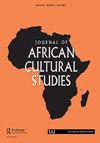政府的局限性:赞比亚的来电广播与新自由主义布道主义的颠覆
IF 0.7
2区 社会学
Q2 CULTURAL STUDIES
引用次数: 0
摘要
随着移动电话在非洲的普及,许多公民都能参加电台节目的现场对话。非洲各国政府和外国援助机构都声称,广播这类辩论可以提高人们的认识,放大穷人的声音,促进发展和改善治理;现在,它们在一些国家资助了很大一部分互动节目。对此类参与性倡议的批评者通常承认它们具有强大的影响力,但担心公民之间的辩论被用作一种 "政府性 "技术,产生与精英经济制度和技术官僚政治制度相适应的大众主体性形式。本文认为,将政治辩论工具化比任何一方所设想的都要困难,而且这些表演的后果主要是意想不到的。文章对赞比亚一档名为 "让我们做负责任的公民"(Let's Be Responsible Citizens)的来电广播节目进行了深入探讨,强调该节目的听众和主持人有能力颠覆节目的监控和政府性议程,并坚持认为公民的主要责任是批评而不是适应不符合其需求的政策和治理体系。本文章由计算机程序翻译,如有差异,请以英文原文为准。
The Limits of Governmentality: Call-in Radio and the Subversion of Neoliberal Evangelism in Zambia
The spread of mobile telephones in Africa has enabled a broad range of citizens to join live conversations on call-in radio shows. Both African governments and foreign aid agencies claim that broadcasting such debates can raise awareness, amplify the voices of the poor, and facilitate development and better governance; they now fund a large share of interactive shows in some countries. Critics of such participatory initiatives typically accept that they have powerful e ff ects but worry that debates among citizens are deployed as a technology of “ governmentality ” , producing forms of popular subjectivity compatible with elitist economic systems and technocratic political regimes. This article argues that instrumentalising political debate is harder than either side assumes, and that the consequences of these shows are mainly unintended. It develops an in-depth case of a Zambian call-in radio programme, “ Let ’ s Be Responsible Citizens ” , emphasising the ability of the show ’ s audience, and its host, to subvert the programme ’ s surveillance and governmentality agenda, and to insist that the key responsibilities of citizens are to criticise, rather than adapt to, policies and systems of governance that do not meet their needs.
求助全文
通过发布文献求助,成功后即可免费获取论文全文。
去求助
来源期刊

Journal of African Cultural Studies
Multiple-
CiteScore
1.70
自引率
10.00%
发文量
13
期刊介绍:
The Journal of African Cultural Studies publishes leading scholarship on African culture from inside and outside Africa, with a special commitment to Africa-based authors and to African languages. Our editorial policy encourages an interdisciplinary approach, involving humanities, including environmental humanities. The journal focuses on dimensions of African culture, performance arts, visual arts, music, cinema, the role of the media, the relationship between culture and power, as well as issues within such fields as popular culture in Africa, sociolinguistic topics of cultural interest, and culture and gender. We welcome in particular articles that show evidence of understanding life on the ground, and that demonstrate local knowledge and linguistic competence. We do not publish articles that offer mostly textual analyses of cultural products like novels and films, nor articles that are mostly historical or those based primarily on secondary (such as digital and library) sources. The journal has evolved from the journal African Languages and Cultures, founded in 1988 in the Department of the Languages and Cultures of Africa at the School of Oriental and African Studies, London. From 2019, it is published in association with the International African Institute, London. Journal of African Cultural Studies publishes original research articles. The journal also publishes an occasional Contemporary Conversations section, in which authors respond to current issues. The section has included reviews, interviews and invited response or position papers. We welcome proposals for future Contemporary Conversations themes.
 求助内容:
求助内容: 应助结果提醒方式:
应助结果提醒方式:


